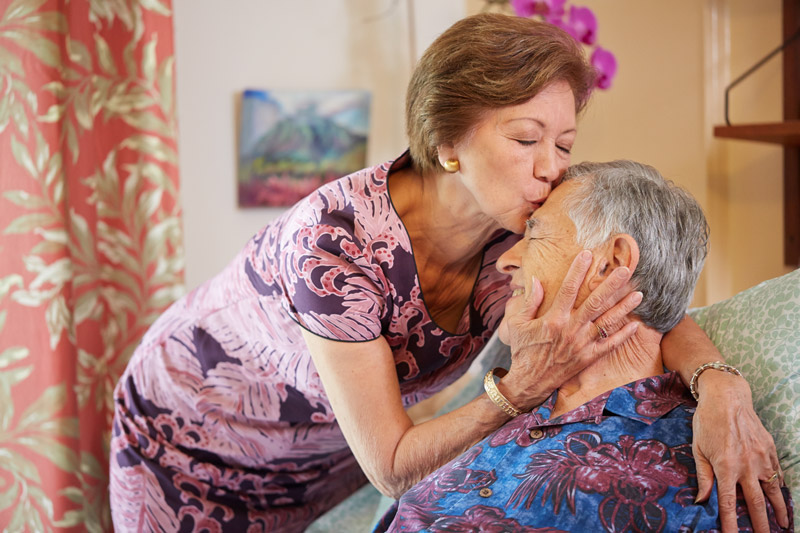The Six ReconciliationNeeds of Mourning
By: Dr. Alan Woelfelt
The death of a loved one changes our lives. Moving from “before” to “after” almost always is a long, painful journey. But if we are to heal, we cannot avoid our grief. We must journey through it all, sometimes meandering the side roads and plowing directly into its raw center.
The journey also requires mourning. That’s different from grief. Grief is what you think and feel inside. Mourning is the outward expression of those thoughts and feelings. To mourn is to be an active participant in our grief journey.
There are six “yield signs” along the journey through grief – the “reconciliation needs of mourning.”

Need 1: Acknowledge Reality
You must confront the reality that someone you care about will never physically come back. When the death is sudden, acknowledging the loss may take months and years. You may try to push away the reality and also replay events surrounding the death. This replay is a vital part of mourning. It’s as if each time you talk it out, the event is a little more real.
Need 2: Embrace the Pain
You must embrace the pain of loss. Although it’s easier to avoid, repress or deny the pain of grief than it is to confront it, when we confront pain we reconcile ourselves to it. “Dose” yourself – don’t overload yourself with the hurt all at one time. At times, you may need to distract yourself from the pain; other times, you’ll need to create a safe place to move toward it.
Unfortunately, our culture encourages the denial of pain. If you openly express feelings, friends may advise you to “keep your chin up.” If you remain “strong” and “in control,” you may be congratulated for “doing well.” Actually, doing well with grief means becoming well acquainted with your pain.
Need 3: Remember the Person
Do you have a relationship with someone after they die? Of course – you have a relationship of memory. Allow and encourage this.
People may try to take your memories away. Well intentioned, they encourage you to keep busy, move out of your house or take down photos of the person who died. Remembering the past makes hoping for the future possible.
Need 4: Develop a New Identity
Part of your self-identity comes from your relationships. When someone dies, the way you see yourself changes. You may go from being a “wife” or “husband” to a “widow” or “widower,” or from a “parent” to a “bereaved parent.”
A death often requires you to take on new roles once filled by the person who died. Someone still has to take out the garbage and buy the groceries. You confront your changed identity every time you do something your lost loved one used to do. This hard work can leave you feeling drained.
Struggling with your changed identity, you may feel child-like, dependent, helpless, frustrated, inadequate, and fearful. But many people discover “positives,” including renewed self-confidence, a more caring, kind and sensitive side, and even more assertiveness.
Need 5: Search for Meaning
When someone you love dies, you naturally question the meaning and purpose of life, especially when the death is senseless, as in drunk driving. You may question your philosophy of life and explore religious and spiritual values, asking, “How could God let this happen?” The death reminds you of your lack of control and leaves you feeling powerless.
The person who died was part of you so you mourn a loss outside and inside yourself, too. You may confront your own spirituality. You may doubt your faith and have spiritual conflicts and questions. This is normal and part of your journey toward renewed living.
Need 6: Receive Ongoing Support
The support you receive during your grief journey influences your healing. Don’t try to do this alone. Drawing on friends, fellow mourners or professional counselors for months and even years after a death is not a weakness but a healthy, human need.
Because our culture values the ability to “keep your chin up,” many mourners are abandoned shortly after a death. They’re told “it’s time to get on with your life.” This only encourages denial or repression of grief rather than expression of it. Your “supporters” must appreciate the impact this death has had on you, and you must be allowed to mourn long after the death.
